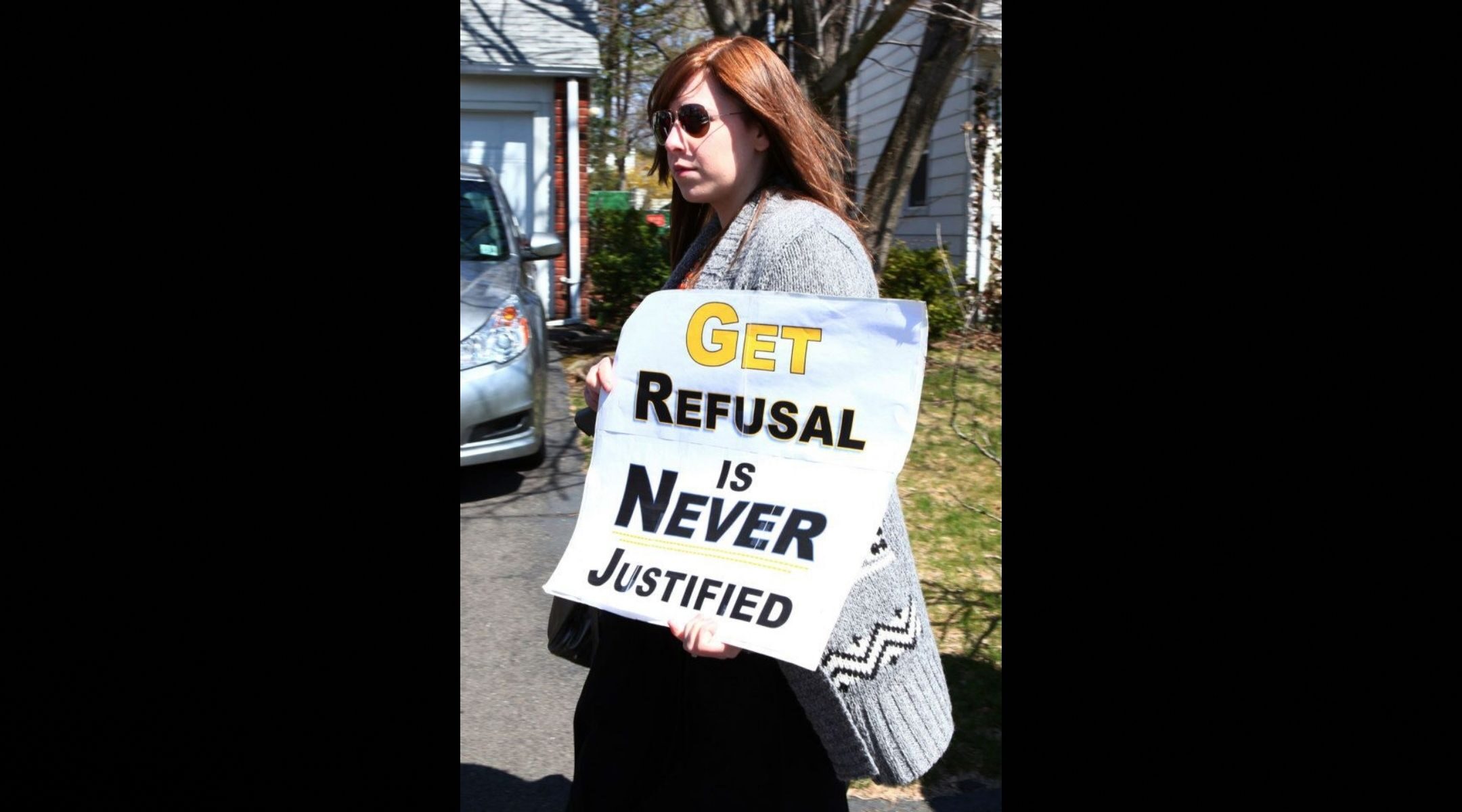(JTA) — Advocates for Jewish women who say their estranged husbands are abusing them by refusing to assent to a religious divorce are cheering after a New Jersey appellate court overturned a ruling against a woman in that state who used social media to advocate for her divorce.
A lower court ruled in 2021 that the woman’s social media posts constituted harassment and incitement. The American Civil Liberties Union of New Jersey got involved in the case then, joining several Orthodox women’s rights groups who had already been working on her behalf.
The woman, who was identified only by her initials, LBB, in Wednesday’s 39-page court ruling, has been separated from her husband since 2019. She says that he has refused to give her a get, or ritual divorce document.
According to Jewish law, if a husband does not give his wife a get, she becomes an “agunah,” Hebrew for “chained woman,” who is unable to divorce and therefore to remarry — even if the couple has already completed a civil divorce. Men who refuse to deliver a get, often to gain leverage in a civil divorce proceeding, face no such restrictions under Jewish law.
A number of organizations in the United States, Israel and beyond have mobilized to press Jewish legal authorities to find a solution to the issue, which Orthodox women’s rights advocates consider a form of domestic abuse. Three Jewish groups filed legal briefs in support of the woman, including the Organization for the Resolution of Agunot, Unchained at Last and the Jewish Orthodox Feminist Alliance.
“We applaud the court’s upholding of the right of agunot, those denied a Jewish divorce, to advocate for themselves within their communities without fear of repercussion.” Keshet Starr, CEO of the ORA, said in a statement. “Get refusal is unquestionably a form of domestic abuse; today, the court has stood up for survivors and against abuse in all its forms.”
In recent years, agunot and their advocates have turned to social media to recruit support for their cause and pressure their husbands to deliver a get. That appears to be what happened in this case. According to the court ruling, in 2021 the woman in question created a video in which she asked viewers to “press” her husband to give her a get. She says she sent it to only two people, but it appears to have spread more widely, and to have led to other social media activism that identified him by name, along with a photo.
The man testified that he subsequently received a series of anonymous phone calls, some containing threats. According to the ruling, he “explained his belief that the Jewish community reacts violently to the withholding of a get and that identifying him as a ‘get refuser’ subjected him to kidnappings and brutal beatings.”
He also said his father was a get refuser and was subject to beating as a result. And he testified about a history of verbal abuse throughout their marriage.
The man also claimed that he did not withhold the get and that he had in fact given it to someone identified in the ruling as the “Chief Rabbi of Elizabeth,” who could have given it to the man’s wife. It is unclear which rabbi the ruling referred to: There is no broadly recognized “chief rabbi of Elizabeth,” a New Jersey city, and unlike other countries such as Israel or the United Kingdom, the United States or its cities do not have a chief rabbi.
In 2021, the man received a temporary, and later a final, restraining order that barred his estranged wife from contacting him and ordered her to remove social media posts calling for the get. The court that issued the restraining order ruled that the social media posts constituted harassment, an invasion of privacy and incitement, and were thus not protected under the First Amendment’s free speech provisions.
The appellate court’s three-judge panel rejected that reasoning, saying that her social media activism did count as protected speech.
“In sum, the judge’s finding that the Jewish community was prone to violence against get refusers — and the implicit holding that defendant was aware of and intentionally availed herself of such violent tendencies — is not supported by the record,” the decision says. “The video was intended to get a get. The video did not threaten or menace plaintiff, and nothing in the record suggests that plaintiff’s safety or security was put at risk by the video.”
JTA has documented Jewish history in real-time for over a century. Keep our journalism strong by joining us in supporting independent, award-winning reporting.






